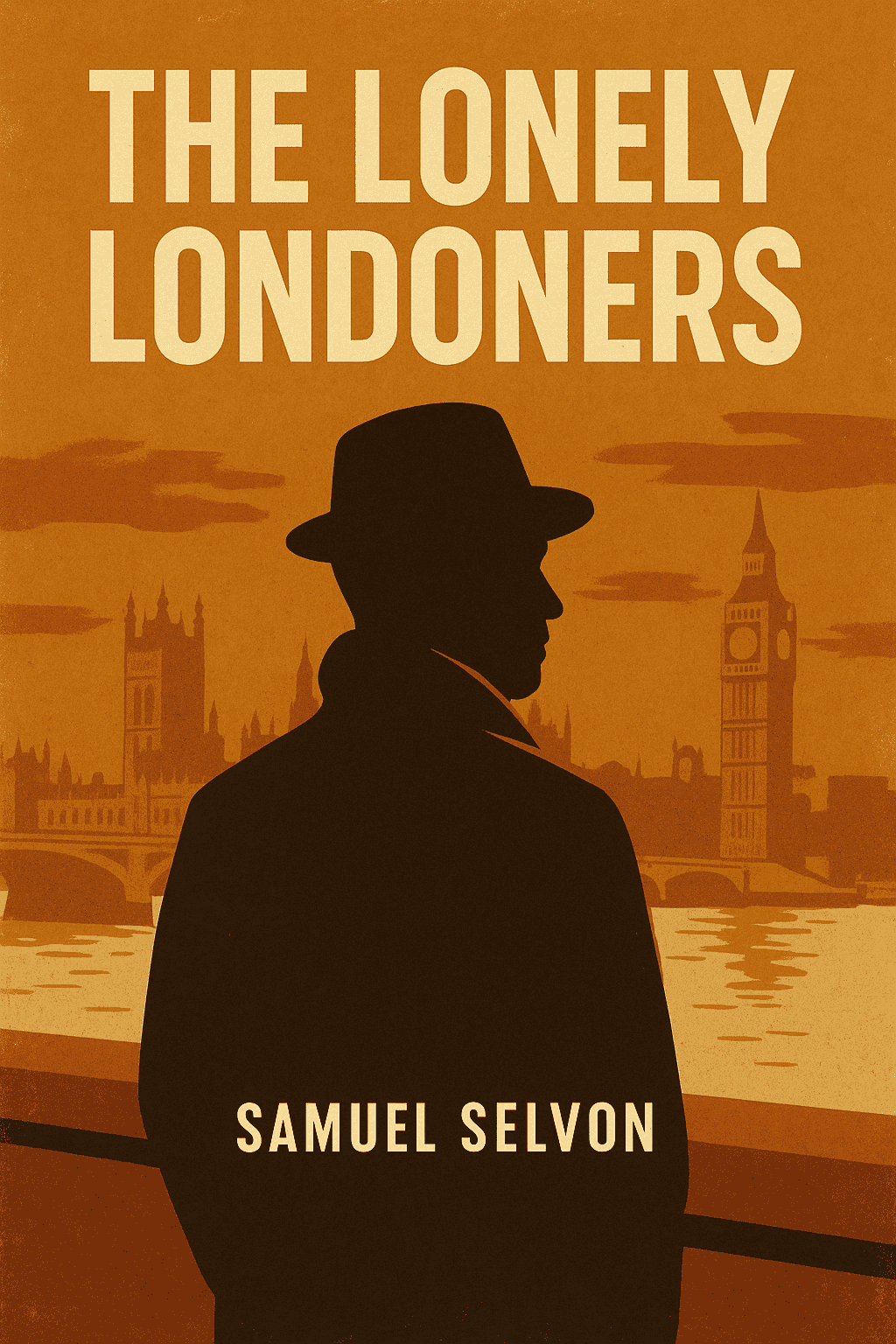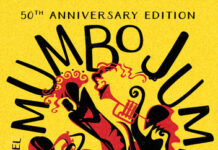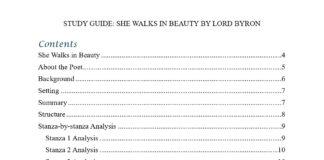Quality UTME Lessons for Art Students
Individual and group classes • Student-friendly rates
📞 Contact Ayomiposi on WhatsApp now
Lawd Today is the first novel written by Richard Wright, an influential African American author best known for his later works Native Son and Black Boy.
Although Wright completed Lawd Today in the 1930s, it wasn’t published until 1963, three years after his death.
Set on February 12, 1936, in the South Side of Chicago, the novel follows one day in the life of Jake Jackson, a Black postal worker trapped in a cycle of routine, frustration, and powerlessness.
Critics have long debated the quality of Lawd Today. When Wright wrote and revised the novel between 1931 and 1937, publishers consistently rejected it. Some readers see it as a flawed early work that lacks the polish and impact of Wright’s later writing, pointing to its loose plot structure and its use of negative black stereotypes. Others argue it borrows too heavily from white writers of the time and falls short in originality.
However, many scholars appreciate Lawd Today for its bold experimentation and for planting the seeds of Wright’s later themes. The novel blends satire and realism, using radio broadcasts of Lincoln’s birthday to highlight the contrast between historical promises of freedom and the ongoing struggles faced by African Americans. The conversations between Jake and his friends echo the shared frustrations of many working-class black men during the Great Depression.
Though the novel reflects some of Wright’s involvement with the Communist Party and critiques capitalist society, it doesn’t offer clear answers or solutions. It is just an honest, unfiltered look at the reality of black life in 1930s Chicago.
This dark satirical novel shows the struggles of one man trapped in poverty, racism, and broken relationships in 1930s Black America.

Plot Summary of Lawd Today
Lawd Today follows one day in the life of Jake Jackson, a black postal worker living on the South Side of Chicago. The story begins and ends in his apartment, where tension and violence between Jake and his wife Lil reflect the cycle of frustration that defines his life.
The date is February 12, Abraham Lincoln’s birthday, and radio broadcasts celebrating the holiday appear throughout the novel.
The novel is divided into three parts, each shorter than the last.
Part One: Commonplace
“Commonplace” is the longest section of the novel. It covers Jake’s morning. It begins with him waking up from a dream of climbing endless stairs.
He’s irritated by the radio and picks a fight with Lil. He accuses her of flirting with the milkman and spending too much on doctor bills. The argument ends with Jake physically assaulting her.
Afterwards, he reads the newspaper, and he makes racist and sexist remarks about political figures and celebrities, including praise for Adolf Hitler and criticism of communists, President Roosevelt, and Albert Einstein.
Jake leaves the house and begins his routine.
At work, he looks through the mail and shows interest in odd get-rich-quick schemes. He gambles on the Black Gold Policy Wheel lottery, using dream symbols as his numbers, but loses.
On the way to the barbershop, he admires a poster of a blonde actress and then vents to Doc Higgins, the barber, about his marriage problems. Doc offers to defend him if Lil complains again at the post office.
Jake later meets up with friends—Bob, Slim, and Al—for cards, jokes, and street watching. They admire a flashy Back-to-Africa parade and chat with a fast-talking patent medicine seller.
Part Two: Squirrel Cage
This section focuses on Jake’s eight-hour shift at the main post office.
Before work starts, he asks for a loan from the paymaster, Jones, who turns him down and warns that Jake might be fired due to another complaint from Lil.
With Doc Higgins’s help, Jake avoids losing his job and finally gets a $100 loan from Jones at a high interest rate.
Jake’s workday is repetitive and dull, filled with sorting mail under strict supervision.
While hand-stamping letters, Jake and his friends discuss a wide range of topics—sex, how to control women, joining the National Guard, and the harsh realities of racism—all with a mix of humour, cynicism, and frustration.
Part Three: Rats’ Alley
After work, Jake and his friends go out for a night that quickly turns bad. He meets a woman named Blanche who seduces him, then sets him up to be robbed of the borrowed money.
Later, he’s beaten by a man named Blue Juice at a nightclub. Drunk and bruised, Jake returns home.
His day ends violently, with Lil hitting him with a broken mirror during another argument. He collapses and bleeds on the floor.
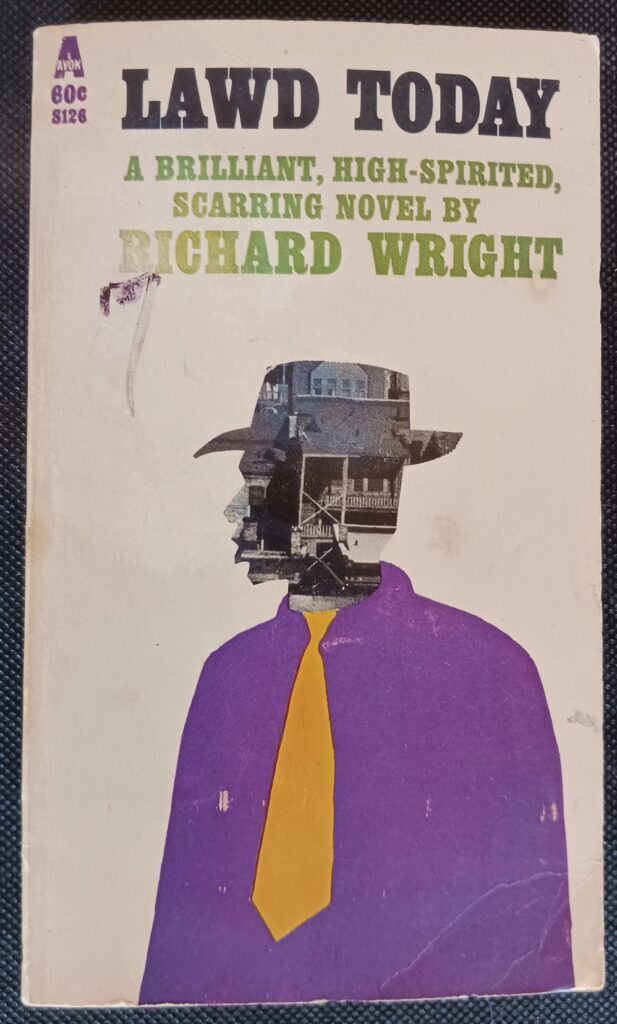
Characters in Lawd Today
The characters in Lawd Today include Jake Jackson, Lil Jackson, Al, Bob, Slim, and Higgins.
Jake Jackson
Jake is the main character of the novel. He’s a frustrated postal worker stuck in a dead-end job and a troubled marriage.
He’s narrow-minded, angry, and often takes out his disappointment on others, especially his wife, Lil. Jake is full of bigoted opinions and dreams of getting rich quick through lottery tickets and strange mail-order scams.
He wants power and control in a world where he feels powerless, and he tries to prove his worth by dominating Lil, hanging out with his male friends, drinking, and chasing women.
Though he rarely reflects on his behavior, he does have a brief moment of self-awareness at the end of the novel when he realises he has no one to blame for his failures but himself.
Lil Jackson
Lil is Jake’s wife. She’s smart and strong-willed, but she lives in constant fear of Jake’s temper and abuse.
Lil struggles to get money for doctor bills because Jake tricked her into having an abortion that left her with serious health problems.
She sometimes threatens to report Jake to the post office when he gets violent, and she finds some comfort in reading religious magazines.
Even though Lil has few options, she fights to keep her dignity and some control over her life.
Albert “Al” Johnson
Al is one of Jake’s closest friends and a fellow postal worker.
He has high blood pressure and heart condition. But then, Al is full of energy and confidence.
Jake envies Al’s charm and the way he takes pride in being a member of the National Guard.
Al’s upbeat personality hides some real struggles, but he still manages to act like the leader of the group.
Robert “Bob” Madison
Bob is divorced, and his health is suffering. He has stomach issues that drinking makes worse.
Even so, Jake encourages him to drink more, a demonstration that their friendship is more harmful than helpful.
Bob often plays along in conversations but doesn’t stand out like Jake or Al.
Nathan “Slim” Williams
Slim is another friend in the group and also in poor health. He has tuberculosis.
His constant coughing disgusts Jake, who doesn’t show much sympathy.
Slim is quiet and doesn’t add much to the group’s discussions, but his presence reminds us of the harsh realities of life in the ghetto.
“Doc” Higgins
Doc is an older man who owns a barbershop and presents himself as wise and helpful. But under the surface, Doc is self-serving. He believes Black people should stick with the rich white power structure instead of trying to change the system.
Though he helps Jake keep his job, he takes advantage of him by demanding more money than they agreed on.
Doc pretends to care about the community, but he’s really out for himself.
Duke
Duke is a young man who represents the voice of idealism and political change. He speaks up for communist ideas and criticises racism and capitalism.
However, his opinions are dismissed by others, including Jake, who isn’t interested in real solutions.
Duke’s presence shows that there are alternatives to Jake’s way of thinking.
Blanche
Blanche is a light-skinned prostitute who seduces Jake, only to rob him. She represents both Jake’s fantasies and his vulnerability. He sees her as exciting and glamorous, but she ultimately takes advantage of him.
Blue Juice
Blue Juice is a pimp who beats up Jake later in the night. Like Doc, he knows how to work the system and take control.
He’s powerful in a way Jake wishes he could be. Their encounter shows just how powerless Jake really is, even in the world of the streets.
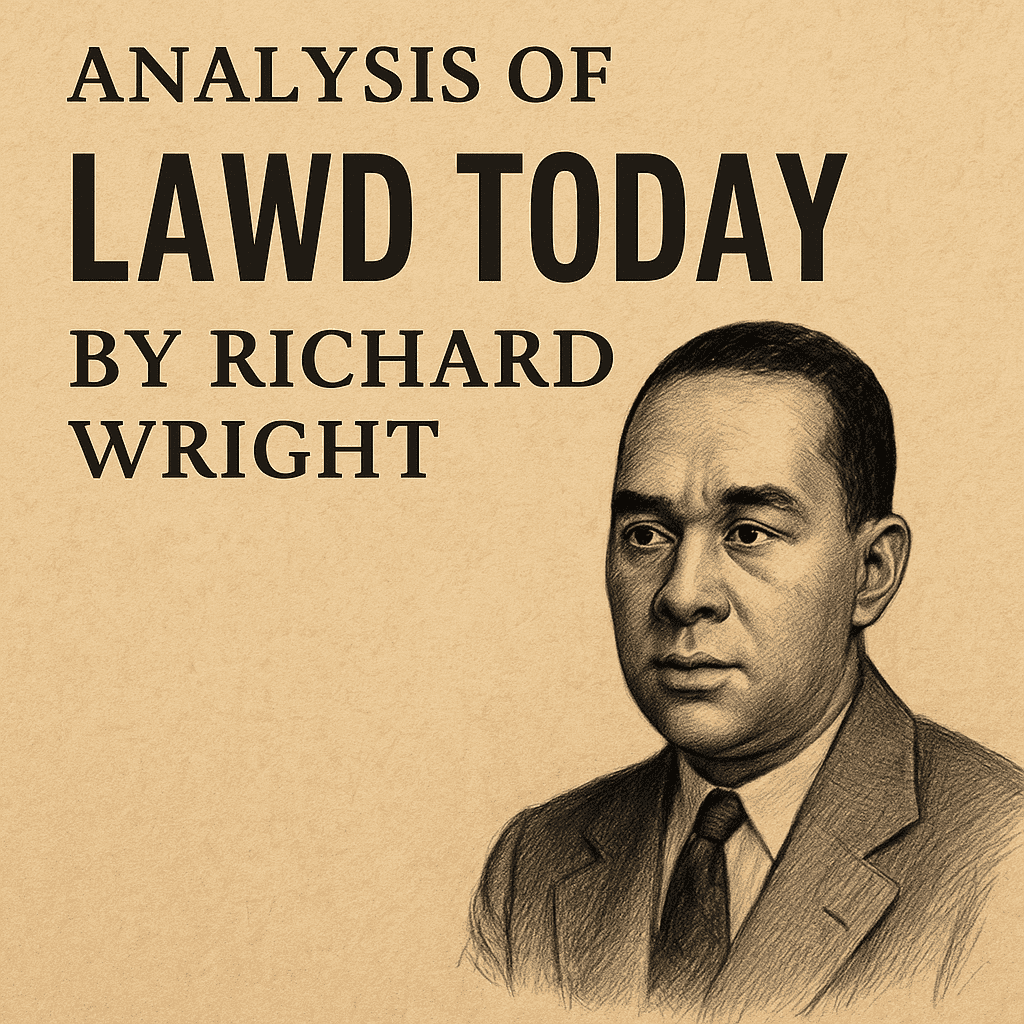
Themes in Lawd Today
Some of the themes in Lawd Today are internalised oppression, failure of the American dream, masculinity, disconnection, and alienation in working-class life.
Theme of Internalised Oppression
In Lawd Today, Richard Wright offers a striking portrait of internalised oppression through the character of Jake Jackson.
Jake is not only a victim of a racist and unequal society. He is also a reflection of how thoroughly that society’s prejudices can infiltrate the mind of the oppressed. Rather than resist the racism, sexism, and classism that shape his daily life, Jake adopts these values as his own, turning them inward and outward in destructive ways.
He voices virulent opinions about Jews, foreigners, and communists, echoing the very white supremacist views that deny him dignity and opportunity. His sexism is equally toxic: he dominates and abuses his wife, Lil, as if asserting power over her can compensate for his own sense of powerlessness in the larger world.
Jake’s internalised bigotry shows how systemic oppression functions most effectively when it teaches its victims to believe in their own inferiority and to lash out at those even more vulnerable.
The novel, while told in a naturalistic style without overt commentary, makes it clear through Jake’s downward spiral that this kind of self-hatred is both socially manufactured and personally devastating.
Theme of Failed American Dream
One of the central ironies of Lawd Today is that Jake sincerely believes in the promises of the American Dream, yet he is entirely excluded from its rewards.
He wants success, wealth, and respectability, but the avenues available to him are either closed off or poisoned by exploitation.
In pursuit of a better life, he engages in gambling, subscribes to absurd get-rich-quick schemes, and fantasises about wealth and status. These pursuits, however, are not expressions of hope or ambition, but symptoms of desperation.
Jake sees no viable path through education, activism, or hard work. Instead, his belief in the American Dream is filtered through the lens of consumerism and illusion. He idolises gangsters and wealthy elites because they appear powerful in a society where he is invisible.
Yet each time Jake reaches for a piece of this dream, he ends up more disillusioned. Wright uses Jake’s futile attempts at upward mobility to expose how the American Dream, especially for black working-class men in segregated Chicago, is less a promise than a trap, dangled in front of them but always just out of reach.
Theme of Masculinity and Power
Jake’s masculinity is shaped by a toxic blend of insecurity, frustration, and social conditioning. In a world where he feels economically and racially powerless, Jake seeks to assert control wherever he can and that often means his wife, Lil.
His physical abuse of Lil goes personal violence. It is also an expression of the belief that manhood requires dominance. He sees his ability to control her as one of the few affirmations of his worth. This masculinity, however, is brittle and performative.
Outside of the home, Jake surrounds himself with male friends who joke, drink, and gossip. Even in these friendships, competition and bravado take precedence over genuine emotional connection. His envy of Al’s swagger and health, for instance, underscores his constant fear of being perceived as weak or failing. Wright portrays this version of manhood as socially destructive and psychologically hollow.
Jake’s attempts to prove himself as a man, a worker and a provider ultimately reveal the emptiness at the core of a masculinity defined by control rather than compassion.
Theme of Disconnection
Jake Jackson’s alienation is cultural and spiritual. As a black man originally from the South now living in the urban North, Jake has become untethered from the rural traditions, community structures, and familial support systems that once played a vital role in sustaining African American identity.
In the South, despite the cruelty of Jim Crow laws, there existed tight-knit communities that offered moral guidance, collective memory, and cultural continuity. In contrast, Jake’s life in Chicago is marked by isolation and moral drift. He has no elders to guide him, no church or extended family to anchor him, and no communal values to counterbalance the corrosive influence of the modern city.
This disconnection leaves Jake spiritually empty and emotionally vulnerable. He has no framework for understanding his struggles except what the dominant culture provides and that culture is often hostile to his existence.
As Wright suggests, the erosion of communal and cultural ties in the North does not bring liberation for black migrants like Jake, but instead exposes them to a different, more insidious form of despair: one in which they must navigate oppression without the moral compass once offered by tradition.
Theme of Illusory Freedom
Set on Abraham Lincoln’s birthday, Lawd Today is haunted by the irony of a holiday meant to honour the emancipation of enslaved people while its protagonist remains trapped in another kind of bondage.
Throughout the novel, radio broadcasts praise Lincoln and celebrate America’s commitment to liberty and progress, but Jake’s lived experience tells a very different story. He is overworked, underpaid, disrespected, and caught in a cycle of poverty and violence that echoes the conditions of enslavement in psychological and social form.
His labour at the post office is repetitive and dehumanising; his home life is defined by power struggles and resentment; his environment is segregated and stagnant.
Jake is not legally enslaved, but he is not free either—not in any meaningful sense. Richard Wright uses this dissonance to pose a sharp critique of American society: how can a nation celebrate freedom when entire communities remain shackled by systemic racism, economic inequality, and social neglect?
The novel’s juxtaposition of Lincoln’s birthday with Jake’s deteriorating life suggests that the promises of freedom and equality have gone unfulfilled for the black working class.
Illusions of Liberation
One of the most symbolically charged moments in Lawd Today is the Back-to-Africa parade, which at first glance appears to be a celebration of black pride and cultural revival. The participants are dressed in grand, military-style uniforms, marching in formation under the banners of “the Supreme Imperial War Council” and the fictional African empire.
To Jake and his friends, the spectacle is impressive. It evokes power, order, and a sense of belonging that seems missing from their everyday lives. However, Richard Wright presents this parade as yet another illusion, another performance of freedom that masks deeper powerlessness.
Far from presenting an authentic alternative to white domination, the movement in the novel imitates the worst excesses of Western imperialism: hierarchy, nationalism, and superficial pageantry.
The slogans about “Brotherhood of Man, Sisterhood of Woman, and the Fatherhood of God” sound uplifting, but they are undercut by the reality that nothing meaningful changes for people like Jake. He watches the parade but does not participate in it; he is moved by its surface but remains untouched by its ideals.
In this way, Wright critiques the falseness of this particular movement and the broader human tendency to mistake spectacle for substance and fantasy for true liberation.
Alienation in Working-Class Life
Jake’s experience at the post office is a grim portrait of modern labour under capitalism. His job is monotonous, repetitive, and closely monitored. He is reduced to a cog in a machine, expected to move quickly and efficiently without asking questions or expressing individuality. The eight-hour shift he endures is stripped of all creativity and satisfaction, emphasising the dehumanising nature of industrial labour.
Wright uses Jake’s work environment to illustrate the alienation that Karl Marx famously described: the worker is estranged from the product of his labour, from his fellow workers, and even from his own sense of self.
For Jake, the post office is a symbol of everything he cannot control. His tasks are mechanical, the hierarchy is rigid, and any attempt to assert himself is met with the threat of dismissal. When Jake seeks a loan from the paymaster, or tries to resolve the complaints lodged by his wife, he is not treated as a man in need, but as a number whose value is measured only in terms of productivity and compliance.
Moreover, because Jake is black, his position within the working class is even more precarious. The union protections, career mobility, and social respect that might be available to white workers are largely absent in his world. Wright presents the workplace as a space where systemic racism and class oppression intersect.
Jake’s alienation is compounded by the knowledge that, no matter how hard he works, he is unlikely to achieve financial stability and personal fulfillment.
Receive Literary Updates through our Social Media Channels:
- WhatsApp: Literature PADI
- Telegram: Literature PADI
- YouTube: @literaturepadi
- Facebook: Literature PADI



